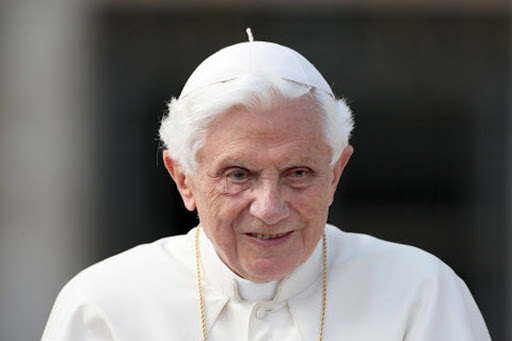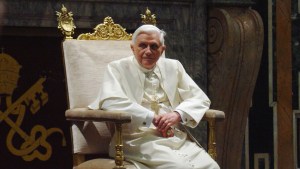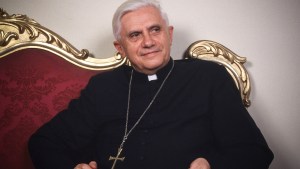Lenten Campaign 2025
This content is free of charge, as are all our articles.
Support us with a donation that is tax-deductible and enable us to continue to reach millions of readers.
Through a methodical analysis of the four “faults” attributed to Benedict XVI in the recent report on abuse in the Archdiocese of Munich-Freising, four German jurists have said the Pontiff Emeritus is not guilty of any wrongdoing. Their response, a three-page legal memo, accompanied Benedict XVI’s personal letter released by the Holy See this week.
The four legal experts – Stefan Mückl, Helmuth Pree, Stefan Korta, and Carsten Brennecke— had already been involved in drafting Benedict XVI’s 82-page response to the commission’s questions.
“Case 41”
In “Case 41,” the experts question the Munich report’s view that Benedict XVI incardinated a priest with knowledge that the priest had committed abuse, and therefore “covered up the priest’s sexual abuse.”
“Joseph Ratzinger had no knowledge that priest X was an abuser,” they write.
His knowledge or lack thereof of the priest’s background is linked to a meeting that became the topic of controversy in the Munich report. Benedict XVI’s testimony initially stated that he was not in attendance at the meeting. However, it was later explained that this was not the case and that in fact, he was there. A clerical error in the preparation of Benedict’s 82-page testimony led to this inaccuracy. (See more on this below)
Having granted that he was at the meeting, the legal experts explain that the background of this priest was simply not part of the discussion at that meeting. “It was only a question of the placement of the young priest X, because he had to undergo therapy in Munich,” the lawyers explain.
The meeting
Regarding the meeting, the team insists that the correction made by the Pontiff Emeritus on January 24 is not evidence of a “lie,” but of a mistake committed by one of them. More precisely, it is a “transcription error that went unnoticed during one of the later stages of the work,” which Benedict XVI did not notice “because of the tight deadlines imposed by the experts” of the Munich report.
That it was a mistake is all the more verifiable, the jurists argue, because Benedict XVI has already acknowledged in the past that he had participated in this meeting. This is the case in several articles, they point out, as well as, more recently, in his biography written by Peter Seewald and published in 2020.
The other three cases
The four jurists then question whether Cardinal Ratzinger had knowledge of the facts of abuse in the other three cases. “No evidence” is put forward in the report that proves Benedict XVI was aware of it, they note.
They point out that Dr. Ulrich Wastl, one of the editors of the investigation, acknowledged this at the press conference presenting the report, saying that there was no evidence that Joseph Ratzinger had knowledge of the facts, but that their “subjective opinion” was that knowledge of the facts was “mostly likely.”
No minimization of exhibitionism
The last accusation taken up by the jurists is that Benedict XVI minimized the exhibitionist acts of a priest.
The four jurists say that this claim is likely based on a sentence in Benedict XVI’s deposition that was “taken out of context.” In this case: “Priest X was noticed as an exhibitionist, but not as a perpetrator of abuse in the true sense of the word.”
The jurists clarify that Benedict’s statement is a reference to canon law.
They explained that according to canon law in force at the time and according to the assessment of advisors in canon law, exhibitionism was not a crime included by the relevant penal norm.
Furthermore, in the same report, Benedict “clearly stated in his position that acts of abuse, including exhibitionism, are ‘terrible’, ‘sinful’, ‘morally condemnable’ and ‘irreparable.'”



